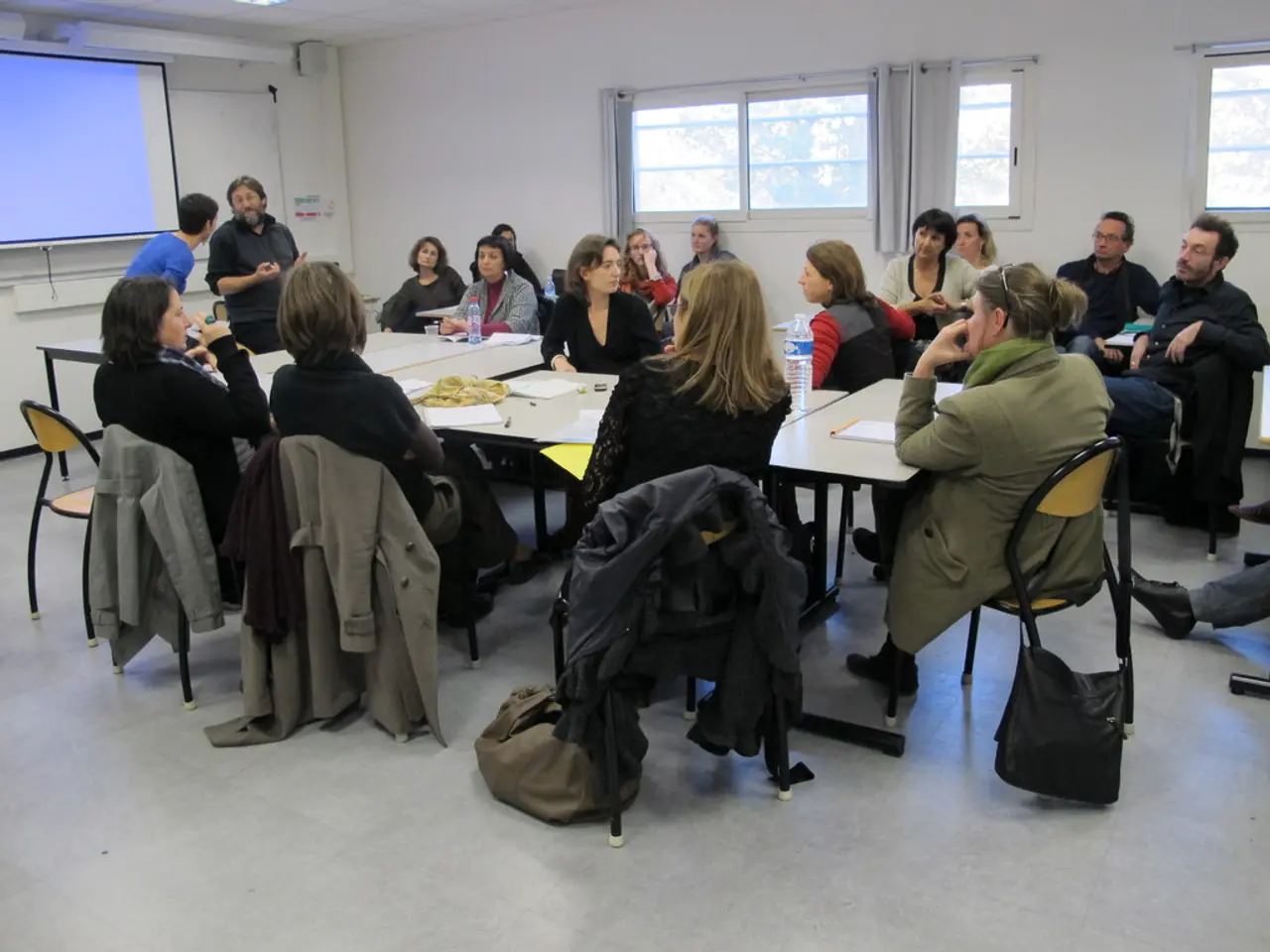Assessing your child's mental well-being through inquisitive inquiries
In a world where mental health challenges are becoming increasingly prevalent, it's essential to foster open and supportive conversations with children of all ages. Mental health issues don't discriminate by age, and children, from the youngest to the oldest, can experience anxiety and depression.
Creating the right conditions for conversation is key. For instance, engaging in side-by-side activities and maintaining a calm demeanour can make children feel more comfortable sharing their feelings honestly.
For younger children, aged between 3 and 6, it's important to keep questions simple and reassure them of their safety. Asking questions such as "Do you feel safe at home?" or "What makes you happy or scared?" can help them express their emotions without feeling overwhelmed.
As children grow older, between the ages of 7 and 9, they begin to understand external influences like news and peers. At this stage, using prompts about their feelings in specific contexts and encouraging creative expression can be beneficial. For example, asking "What did you hear about [event] at school?" or "Can you draw how you feel about it?" can provide valuable insights into their emotional wellbeing.
Children aged between 6 and 11 may struggle to name their emotions, but asking specific questions about their daily experiences, such as "What was the best part of recess?" or "What was hard for you at lunch today?", can help them articulate their feelings more effectively.
For tweens and teens, aged between 12 and 18, it's important to encourage discussion of specific worries and support systems. Questions like "Are there things you worry about lately?" or "Who do you talk to when you feel stressed?" can help address their concerns and validate their feelings. Asking "What helps you feel better when you are down?" can also provide valuable insights into their coping mechanisms.
For older children and teens, formal mental health assessments may be necessary, often guided by professionals and using structured questionnaires. These assessments can help identify symptoms such as sadness, anxiety, or thoughts that interfere with daily life.
It's crucial to remember that immediate professional help is needed for self-harm talk, unexplained injuries, substance use, or overwhelming emotions that a child cannot control.
Changes in sleep, appetite, energy, or unexplained aches in children can also signal mental health struggles before emotional signs appear. If you notice any of these changes in your child, it may be a good idea to initiate a conversation or seek professional help.
In summary, effective questions evolve from simple reassurance and safety for young children to more specific emotional and social inquiries for older kids and teens. Engaging children in a comfortable, non-threatening way and focusing on concrete events and feelings helps gather meaningful mental health information. By fostering open and supportive conversations, we can help our children navigate the complexities of their emotional lives and support their mental health journey.
References: [1] https://www.cdc.gov/violenceprevention/childabuseandneglect/faq/index.html [2] https://www.ncbi.nlm.nih.gov/pmc/articles/PMC6031481/ [3] https://www.ncbi.nlm.nih.gov/pmc/articles/PMC6124384/ [4] https://www.cdc.gov/childrensmentalhealth/index.htm [5] https://www.helpguide.org/articles/parenting-family/talking-to-kids-about-feelings.htm
Science plays a crucial role in understanding and addressing mental health challenges in children, as research in health-and-wellness, education-and-self-development, and personal-growth contributes to unveiling effective strategies for parenting.
For instance, studying the cognitive and emotional development of children can help parents design questions that encourage open dialogue about their mental health. This research could also help us understand the benefits of creative expression for children's emotional wellbeing.
Furthermore, incorporating mental-health education in school curriculums, promoting mental-health awareness campaigns, and providing resources for parents can contribute to fostering a more comprehensive culture of wellness and personal growth within our society.




